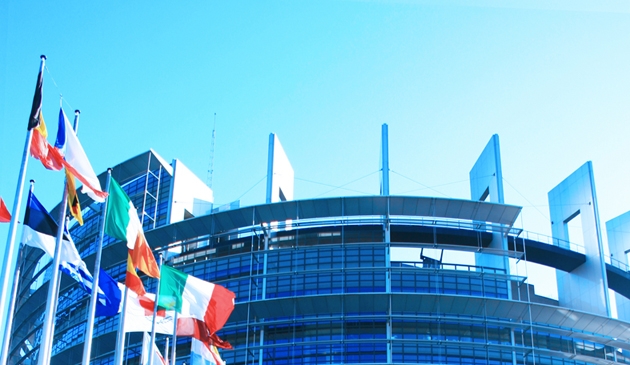
More power for the parliament
The Convention on the future of Europe is drawing up a constitution that is supposed to transform the EU. Much of the discussion has focused on the EU's executive: the powers of the Commission, the organisation of the EU presidency and the role of the European Council. So far, the Convention has rather overlooked the Parliament, despite the fact that it is the only EU institution which is directly elected.
The purpose of the Convention is to redesign the Union so that, after enlargement to 25 countries, the EU continues to function. The Parliament of 2004 will be very different to that of today. It will have more than 700 members, speaking around 20 languages, and the parliamentary groups probably more numerous than today will bring together very disparate collections of MEPs. For the sake of Europe's citizens, the Parliament needs to become both a seat of power, and a place that shapes political debate. We cannot have a more efficient and democratic Europe without expanding the powers of the Parliament.
The Parliament can censure the Commission as it did in 1999, when it made the Santer Commission resign but cannot be dissolved. Its legislative powers vary according to complex and diverse procedures, such as co-decision, co-operation and assent. It has a big say on the budget, though not over farm spending, and it cannot levy taxes. There is an imbalance between the two branches of legislative authority, the Council of Ministers and the Parliament, at the expense of the latter, which the Convention needs to rectify.
If the EU is to become a real democracy, the Parliament needs to be able to vote on taxes. The Union should have its own financial resources, to replace national contributions to the EU budget. The EU could take over responsibility for administering an existing tax, such as corporation tax, or create a new environmental tax. If MEPs voted on taxes the Union would become more transparent to its citizens. And the governments would no longer need to fight over their contributions to the EU budget. The Parliament should also gain full powers over the farm budget.
The Parliament's power of 'co-decision' (which puts it on an equal footing with the Council in law-making) should extend to all legislation. And the Council should vote on all EU laws, including those on tax and social affairs, by qualified majority vote. We also need to simplify law-making procedures, so that MEPs can concentrate on essentials rather than waste their time on technical details. Therefore the Parliament and Council should delegate the minutiae of writing laws to the Commission, though each should have the right to review the Commission's work. The Parliament should gain the right to approve international treaties, as well as the results of future treaty-revising conferences.
The Parliament draws its legitimacy from the European elections. We need to establish a single system of election throughout the Union, that is comprehensible; ensures that MEPs stay close to their electors; and provides for the representation of a wide range of viewpoints. Electors should have two votes: one for regional lists national lists should be banned through which 90 per cent of the MEPs would be chosen by proportional representation; and one for transnational European lists, which would account for the remaining ten per cent. That would contribute to the emergence of a truly European public space, shaped by political parties that are independent of national political games.
The Parliament should gain powers over the choice of the executive and that choice should feature in the European elections (currently the European Council chooses the Commission president, but the Parliament has to approve that person). Of course we cannot define the Parliament's role in choosing the executive until we decide whether the Union will have one, two or however many presidents. My preference would be for the president of the Commission to become president of the entire Union. We would then need to choose that figure by a method that reflects the double legitimacy of the Union that of peoples and citizens; and that of states. The president could be chosen by a Congress that brought together MEPs and national parliamentarians; but the European Council would need to approve the result. The Parliament should also gain the power to nominate members of the governing board of the European Central Bank; currently it only has the right to be consulted.
Finally, we need a mechanism to avoid the possibility of a prolonged conflict between the executive and the legislature. If within three months of sacking the Commission, the Parliament has not approved a new one, the European Council should be able to break the political deadlock by dissolving the Parliament.
